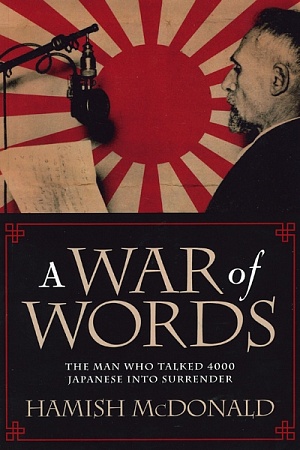The Rise and Fall of Modern Japanese Literature
University of Chicago Press (Footprint), $69 pb, 406 pp, 9780226545134
The Rise and Fall of Modern Japanese Literature by John Whittier Treat
In his 1998 book, Japanese Literature as ‘fluctuation’ (‘Yuragi’ no nihon bungaku), Komori Yōichi deconstructs the concept of ‘modern Japanese literature’ by examining the Encyclopedia of Modern Japanese Literature (『日本近代文学大辞典』), an impressive work that, despite its six volumes, fails to provide an entry for the very thing it proposes to discuss: modern Japanese literature. This, Komori argues, is due to modern Japanese literature’s status as a ‘privileged sign’. Like the modern nation-state of Japan, it can only be defined indirectly, through a tautology of association and exclusion. That is, a work is modern only if it is not premodern. To not be premodern, a text must not only be written after the start of the Meiji period (1868–1912), it must also have been properly baptised at the font of European and American literature.
We know that Akutagawa Ryūnosuke is a modern writer not simply because he was active in the early twentieth century but because scholars have discerned in him traces of Anatole France. Had Akutagawa written gesaku, waka, monogatari, or in any other ‘premodern’ literary mode, he would be invisible to the editors of the encyclopedia, regardless of when he wrote. This logic of exclusion is applied to the other components of the phrase, ‘modern Japanese literature’. A work is Japanese if it is not non-Japanese, if it is written in Japanese by a Japanese person – though the concepts of Japanese l anguage and ‘Japaneseness’ are themselves hardly straightforward. A text is ‘literature’ only if it is not not literature, if it is not art, music, journalism, etc.
Continue reading for only $10 per month. Subscribe and gain full access to Australian Book Review. Already a subscriber? Sign in. If you need assistance, feel free to contact us.














Leave a comment
If you are an ABR subscriber, you will need to sign in to post a comment.
If you have forgotten your sign in details, or if you receive an error message when trying to submit your comment, please email your comment (and the name of the article to which it relates) to ABR Comments. We will review your comment and, subject to approval, we will post it under your name.
Please note that all comments must be approved by ABR and comply with our Terms & Conditions.